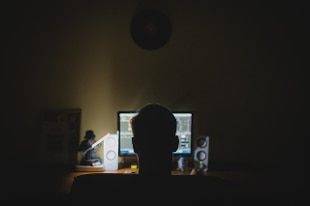- Coronavirus and fake news, Facebook: notification to those who spread them
- Online school, hacker attack on Axios platform
- Coronavirus, INPS site on tilt. Tridico: 100 thousand requests per second. Conte: "System hacking"
- Coronavirus, Spallanzani hacker attack failed
Share
by Celia Guimaraes 22 April 2020 The news anticipated a few hours ago by the Washington Post is confirmed: almost 25,000 e-mails, passwords and apparently classified documents from the Gates Foundation, the World Health Organization and the Virology Institute of Wuhan, China, they were published on sites linked to the far right, before being shared on the Pastebin archiving site, as well as on Twitter and Telegram.Australian Cybersecurity expert Robert Potter says he has confirmed the authenticity of the addresses when it comes to WHO emails. The list includes nearly 10,000 Nih addresses, nearly 7,000 Centers for Disease Control and Prevention, over 5,000 from the World Bank and 2,700 from the WHO.
The numbers of email addresses of the Gates Foundation, the philanthropic association of Bill Gates that last week announced a $ 150 million fund for the fight against coronavirus, were smaller. The list also includes addresses of the Wuhan Institute of Virology, the Chinese research center accused by some of having been the origin, with a laboratory accident, of the spread of the virus.
The targeted agencies and the FBI have not yet released any comments. The Gates Foundation said it is monitoring the situation but "there are currently no indications of any intrusion into the foundation's data."
In addition to the Washington Post, the Seattle Times also reported on an alleged hacker attack:
Anonymous activists have posted nearly 25,000 email addresses and passwords allegedly belonging to the National Institutes of Health, the World Health Organization, the Gates Foundation and other groups working to combat the coronavirus pandemic. https://t.co/unvwq6TAZf
- The Seattle Times (@seattletimes) April 22, 2020 Was thisa hacker attack? There are doubts about it, even if it is claimed. The Motherboard site, for example, made a check on a series of emails made public on the haveibeenpwned.com site - which lists data breaches - and found that each of the tested addresses was part of previously known data, which concerned other violations. Same conclusion as the American Wired site.
'Data breach' with multiple developments
A still sensational news - engineer Pierluigi Paganini, cybersecurity expert and Cto of Cybaze comments to Rainews.it - for several reasons: "The news is disconcerting because the spread of email addresses, which would appear to be authentic, it exposes the representatives of the affected organizations to the risks of further attacks, especially by nation-state actors interested in acquiring information on the response to the spread of the virus and on the progress in testing drugs and vaccines, "increasing the potential risks. Furthermore, the expert added, "some of the popular addresses seem not to be included in archives stolen in previous data breaches, which suggests that the group claiming the attacks has really compromised the organizations targeted".
"We try to understand if the attack occurred or not, aware that the technical effect of the diffusion of these addresses does not change much and that it could have devastating consequences. According to the Vice site, which claims to have tested all the emails contained in the data leak, the same are the result of previous data breaches ", but the substance does not change, according to Paganini:" It does not exclude that the organizations have been really compromised, but which also suggests that the group that disclosed the archives could have them collected from previous violations and once aggregated it would have used them to prepare one of the greatest disinformation campaigns ".
Fake news objective
"The risk - observes Paganini - is the manipulation of information to orchestrate disinformation campaigns aimed at discrediting governments and the organizations involved themselves. At a critical moment like this, foreign governments may be interested in disseminating news manipulated with the intent to destabilize the political context of a country and influence the sentiment of entire populations on specific issues, a job that would have been very simple to see in the media bombardment of these weeks ".
And finally, concludes Paganini, it should not be overlooked "the effect that the disclosure of information on specific collaborations and funding, possibly reliable and subsequently verified information, could have on public opinion and on the work of the same organizations affected and of the governments that represent. "
And in fact, shortly after the hacking news was made public, conspiracy theorists resumed spreading the idea that Covid-19 was designed in a Wuhan laboratory and funded by Americans, a theory supported by the well-known French virologist Luc Montagner.

